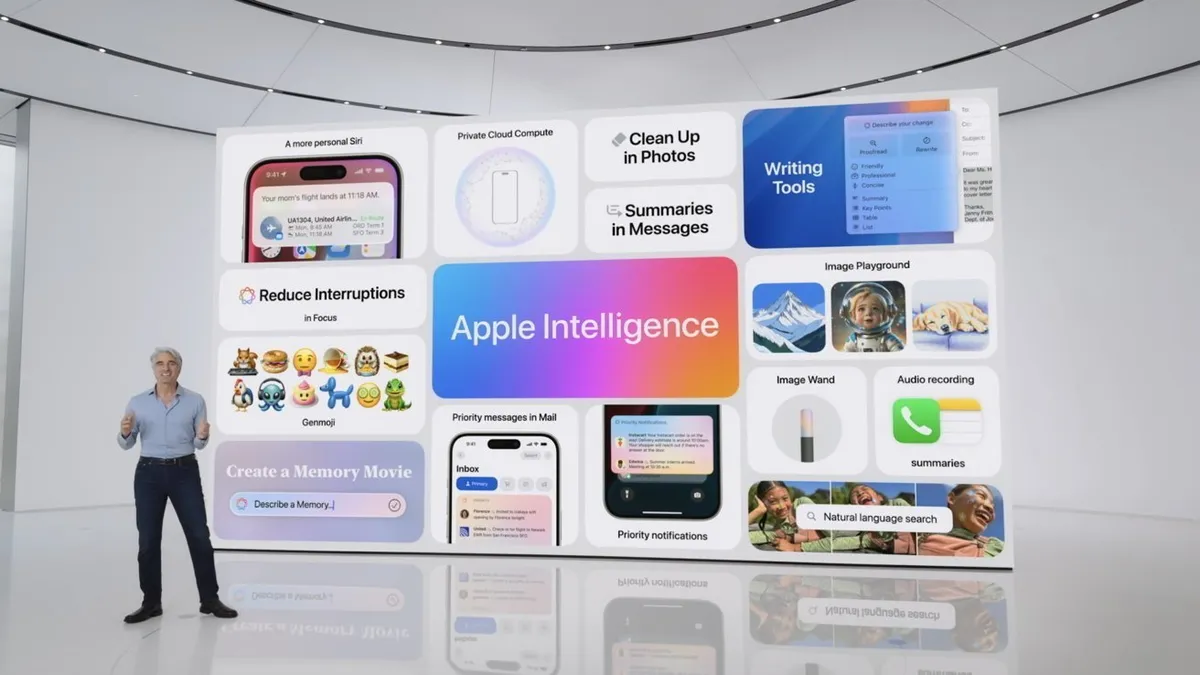
The upcoming WWDC 2025 keynote may not significantly enhance the profile and functionality of Apple Intelligence, as recent reports suggest that Apple's AI announcements will be limited and potentially disappointing. Ever since the introduction of Apple Intelligence at the WWDC 2024 event, the rollout of its AI initiatives has been characterized by a painfully slow and tumultuous process.
While the 2025 WWDC event presents an opportunity for Apple to pivot and improve its AI offerings, a recent report raises concerns about the company's ability to do so. According to the latest Power On newsletter from Bloomberg, insiders indicate that the upcoming WWDC will likely disappoint attendees in terms of AI advancements. Following the impressive announcements made during the Google I/O keynote, which showcased substantial new AI features, Apple's performance at WWDC could further emphasize its struggle to keep pace with industry competitors.
Reports indicate that the 2025 WWDC will be relatively smaller in scope compared to its predecessors in 2023 and 2024. However, there is a belief that after a year-long hiatus, Apple will strive to innovate and make a significant impact during the WWDC 2026. This strategy, while ambitious, poses considerable risks for Apple, especially in an environment where competitors are continuously pushing the envelope with new technologies and expanding their market dominance.
As for potential announcements at WWDC 2025, the list of expected features appears disappointingly brief, according to the report. The most notable change could be the decision to allow third-party app developers access to Apple's Foundation Models. This move would enable developers to leverage the same on-device processing capabilities and models that power existing Apple Intelligence features, such as image generation and text summarization.
Despite the optimism surrounding the opening of Apple's Foundation Models, there are limitations to consider. The local large language models (LLMs) are expected to be around 3 billion parameters, which is significantly less powerful than cloud-based models. Nevertheless, this development would still empower developers to perform on-device processing of queries, enhancing the user experience for Apple's clientele.
As the WWDC 2025 approaches, the tech community will be watching closely to see if Apple can deliver on its AI promises or if it will continue to lag behind its competitors. With the stakes higher than ever, the pressure is on for Apple to innovate and reclaim its position as a leader in the rapidly evolving AI landscape.